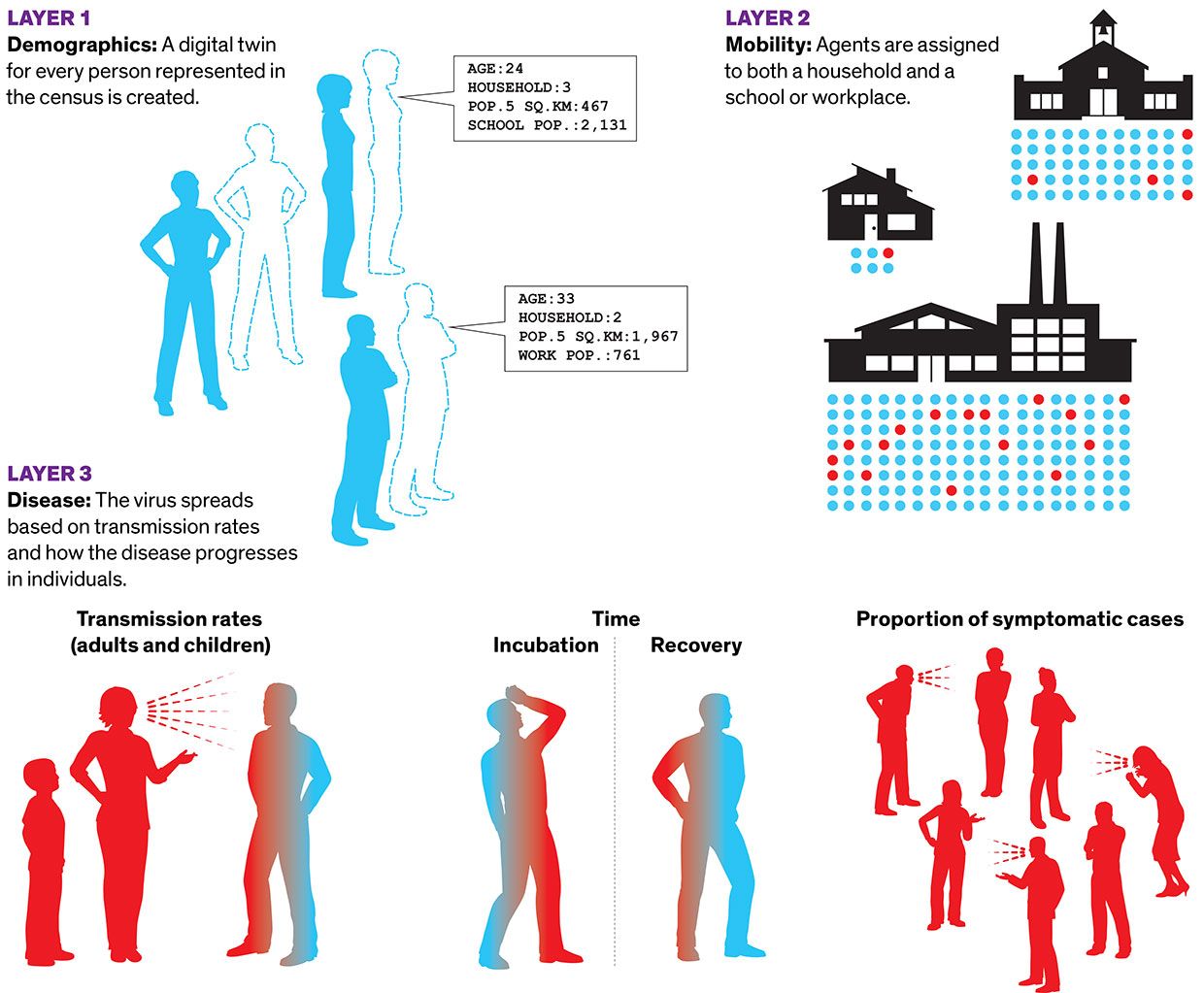07 dezembro 2020
‘Immunity Passports’ Exist, But Are They a Bad Idea?
27 novembro 2020
“Este virus va a seguir entre nosotros para siempre”
“Este virus va a seguir entre nosotros para siempre”: Ian Lipkin, uno de los mayores expertos en virus emergentes del planeta, opina que será imposible erradicar el SARS-CoV-2
P. ¿Cuándo cree que terminará esta pandemia?
R. Vamos a vivir el resto de nuestras vidas con este virus; no va a desaparecer. Habrá que vacunar a los recién nacidos para siempre y probablemente tengamos que dar dosis adicionales de recuerdo a los ya vacunados. Va a ser un problema recurrente. No creo que la vida vuelva a ser del todo normal.
26 outubro 2020
Why Modeling the Spread of COVID-19 Is So Damn Hard
Why Modeling the Spread of COVID-19 Is So Damn Hard : Too many of the COVID-19 models have led policymakers astray. Here’s how tomorrow’s models will get it right



Here’s How the Pandemic Finally Ends
Coronavirus changes we might want to keep
Coronavirus changes we might want to keep: The coronavirus pandemic has caused hardship and sorrow around the world, but it has also forced innovations that might stick around after the pandemic is under control.
Why it matters: Some of those changes have proven to be popular and may improve people's lives if they become permanent.
Charting the coronavirus pandemic over the next 12 months — and beyond
Now — with health authorities saying it may not be until at least the end of 2021 before there’s a degree of post-Covid normalcy in our lives — look forward. Imagine the next 15 months and what life will be like.
29 setembro 2020
Forecasting the COVID-19 recession and recovery
24 setembro 2020
Here's what Google trends can tell us about the spread of coronavirus
In terms of fighting Covid-19, Google Trends might be most useful to scientists figuring out the disease’s secondary health impacts.
23 setembro 2020
Why Modeling the Spread of COVID-19 Is So Damn Hard
Charting the pandemic over the next 12 months — and beyond
14 setembro 2020
How to ensure a green and just COVID-19 recovery
• Cities have the power to cut 90% of emissions and create 87 million jobs by 2030.
• The C40 Global Mayors COVID-19 Recovery Task Force brings together mayors from around the world to forge a strong, swift, green recovery.
• Priorities are green jobs; safe, affordable housing; resilient infrastructure; renewable energy and zero-carbon mass transit.
02 setembro 2020
13 agosto 2020
We Don’t Have to Despair
07 agosto 2020
How the pandemic might play out in 2021 and beyond
03 agosto 2020
The Sociologist Who Could Save Us From Coronavirus
Beck argued that the omnipresence of large-scale threats of global scope, anonymous and invisible, were the common denominator of our new epoch: “A fate of endangerment has arisen in modernity, a sort of counter-modernity, which transcends all our concepts of space, time, and social differentiation. What yesterday was still far away will be found today and in the future ‘at the front door.’” The question, so vividly exposed by the crises such as Chernobyl and the ongoing coronavirus pandemic, is how to navigate this world. The relevance of Beck’s answers are even more apparent in our day than they were in his own. (...)
If we go back to 1986, Beck anticipated three ways in which societies might deal with the risks he identified.
What Beck himself hoped for was what he called a cosmopolitan micropolitics. This was a logical extension of his model of reflexive modernity, in which not just science has been dethroned, but also the previously demarcated sphere of national politics, dominated by parliaments, sovereign governments, and territorial states. What Europe witnessed starting in the 1980s was a double movement which, on the one hand, dramatically reduced the intensity of political conflict between parties in the parliamentary sphere and, at the same time, politicized previously unpolitical realms such as gender relations, family life, and the environment, spheres which he dubbed “sub-politics” or “micropolitics.” For Beck this was no cause for lament. The challenge was to invigorate subpolitics at whatever scale they operated. This could be intensely local, as in struggles over road projects or airport runways. But it could also be global in scope.
What’s on the agenda for post-pandemic meetings?
COVID-19 is unlikely to mean the end of physical conferences entirely. Yet many hope, or think, that the global health crisis will change meetings forever.
30 julho 2020
Pandemic Planning Scenarios
29 julho 2020
Working from Home During COVID
The death of the city
-
The Value of a Cure: An Asset Pricing Perspective : We provide an estimate of the value of a cure using the joint behavior of stock prices ...
-
The Oxford/AstraZeneca Vaccine Efficacy Data : We’re going to have to wait and collect more data to be able to say anything about these, fo...
-
A flood of coronavirus apps are tracking us. Now it’s time to keep track of them. So far we have documented 25 individual, significant auto...
